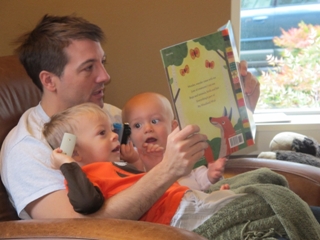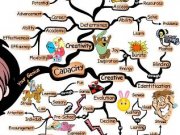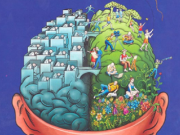
Storytelling can make an important contribution to the development of emotional literacy and the social and emotional aspects of learning:
Self Awareness
To tell a story is a conscious act of self expression through which a child can experience themselves. Telling stories, a child can develop non-verbal skills of gesture, posture and tone of voice. Learning to tell stories can help develop self confidence, self esteem and a deeper sense of their own being – their thoughts, feelings, body and spirit.
Managing Feelings
Storytelling is a way of talking about our feelings and thoughts without intruding on personal issues. Telling, listening to, and discussing stories helps children learn and build their emotional vocabulary, by asking questions like, “What is the heroine feeling?” “What makes her feel this?” “How do her feelings change during the story?”
Many storytellers who work with children comment how children with emotional and behavioural difficulties respond enthusiastically to storytelling.
Motivation
The use of storytelling in interactive, cooperative work can support children to paint pictures in their mind’s eye of what the future might be for them. There are many stories about heroes and heroines – often the youngest or least fortunate in the family – and how they face and overcome obstacles through wit, fortune, the kindness of strangers or the wisdom of the natural world.
Empathy
Telling stories and listening to others telling stories helps develop the capacity to recognise and understand another person’s feelings. Empathy is the counterpart of self awareness. Watching and listening to another person telling a story, a child can learn to relate to the other person’s way of expressing emotion and to their gesture, posture and tone of voice.
Social Skills
Storytelling helps foster social understanding and competence. Stories impart wisdom about how to live; for example, the well known story of The Emperor’s New Clothes is partly about how the fear of being thought stupid leads to stupid behaviour. Telling and talking about stories helps children think about moral issues and develop a sense of values. Cooperative storytelling games can help develop such social skills as initiating and allowing eye contact, taking turns and understanding rules, increasing assertiveness and dealing with conflict.
Storytelling Helps Develop Language Skills
As a small child, avidly listening to my schoolteacher father and his colleagues telling yarns was an invaluable life experience which I have never forgotten. I learnt the use of language by hearing it well spoken. I learnt how to structure sentences long before I was taught grammar. I learnt to understand the meaning of words by hearing them used in their correct context. I expanded my vocabulary by hearing unfamiliar words being used; I have an actual memory of discovering the word ‘idea.’
So, listening to stories aids the learning of language:
We learn language best when we hear it well spoken.
We implicitly learn the correct way to structure sentences.
We learn to understand the meaning of words by hearing them used in context.
We expand our vocabulary when we grapple with unfamiliar words.
What is even more beneficial than simply listening to stories, is that storytelling can be used to help children become good storytellers themselves, developing their competence and facility with language and using language to express the richness of their imagination. Children learn, by telling stories, to be self-confident in using language to articulate their feelings, thoughts and ideas.
Storytelling Helps Develop Communication Skills
Speaking And Listening
Telling and listening to stories helps develop interpersonal skills of discourse and presentation. Storytelling helps develop attention and concentration skills.
Self Expression
Telling stories, a child can develop those non-verbal skills of gesture, posture and tone of voice discussed earlier. Learning to tell stories can help develop self confidence, self esteem and a deeper sense of their own being.
Thinking Skills
The power of the narrative helps the child remember. Talking about a story helps children to ask questions, formulate ideas, give reasons for what they think, listen to different ideas, argue their point of view, learn to stand their ground and to change their minds.
Creativity
The use of imagination and metaphor in storytelling helps a child to develop his or her creativity. Making up or working up a story and then telling it is a way in which a child may express their creativity.
Interpersonal Skills
Friendships and close relationships are fostered by reciprocal storytelling. Becoming familiar with storytelling helps a child learn and understand the verbal and non-verbal cues in what others express.












